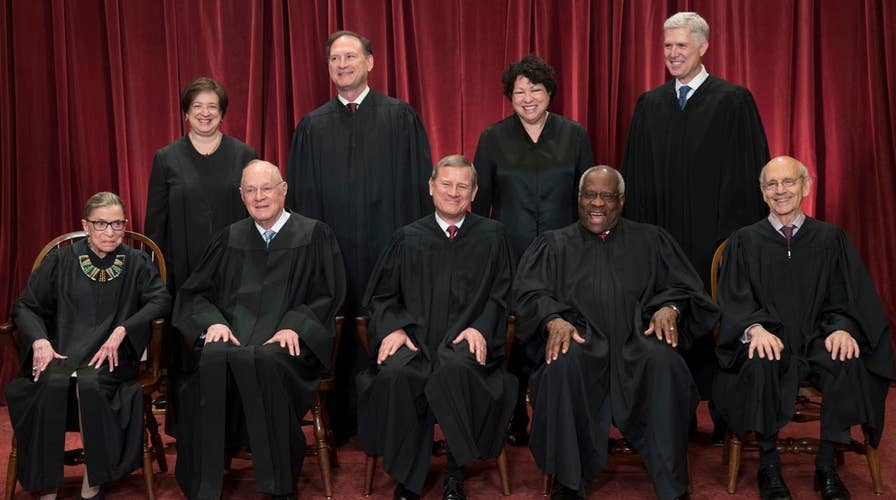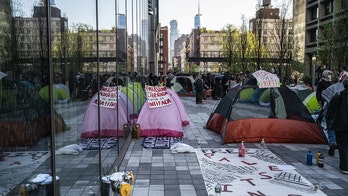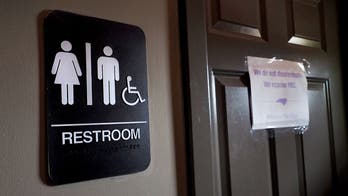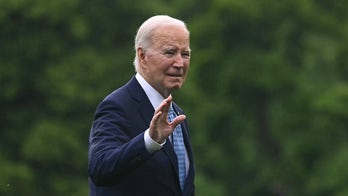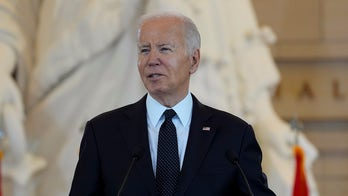Trump seeks to carve out his legacy on the federal bench
The president's choices for federal judges could not only have an impact on key legal disputes, but could also wind up cementing his long-term legacy; Shannon Bream provides insight on 'Special Report'
With the successful confirmation of Justice Neil Gorsuch to the Supreme Court, a confident White House is now quietly turning its attention to filling the lower federal courts.
There are currently 137 vacancies, giving President Trump a chance to move the judiciary sharply to the right.
It is something past presidents have done, creating a political and ideological legacy that far outlasts their tenure in office. And it gives the White House a ready team of possible candidates for the biggest political and professional prize – a seat on the Supreme Court, in the event of another vacancy.
"The trend is to look to young judges on the lower courts to fill Supreme Court seats when they open up," said Elizabeth Wydra, president of the progressive Constitutional Accountability Center. "That gives you several decades of influence on the high court."
Included in the current 15 percent federal court vacancy rate are 21 seats on the regional federal appeals circuits – influential courts where eight of the nine current members of the Supreme Court sat before being elevated.
Several Trump nominees to those openings were state court justices on the original "List of 21" names then-candidate Trump offered as possible Supreme Court candidates. The GOP nominee at the time vowed only to choose from that list and did just that weeks after taking office, tapping Gorsuch to replace the late Justice Antonin Scalia.
Many court watchers say with a Republican-led Senate, the president has a unique opportunity to take the offensive when it comes to the third branch of government.
"What he now needs to do is replicate the success of Justice Gorsuch on a massive scale throughout the courts of appeals and district courts," said Thomas Dupree, a former top Justice Department official in the Bush White House.
Government sources say the pending nominations also give key judges -- like state supreme court justices Allison Eid, of Colorado; Joan Larsen, of Michigan; and David Stras, of Minnesota -- valuable experience in the federal nomination process, should they one day be tapped for the Supreme Court.
One name in particular is gaining traction-- Judge Amul Thapar, who already has been confirmed to sit on the 6th Circuit U.S. Court of Appeals.
He already had been personally interviewed by Trump as a finalist for the Scalia seat while still a district court judge, a sign the White House may be grooming him for bigger things.
"If you are looking for someone to keep an eye on for future potential nominations, I think Judge Thapar would be an excellent candidate," Dupree said. "For the many judges who didn't make the cut for the seat that went to Gorsuch, this gives the president a great starting point, a great field team from which to choose for future nominations for courts of appeals and maybe someday to the Supreme Court."
There had been a good deal of misplaced anticipation in late June that Justice Anthony Kennedy would step aside after nearly 30 years on the high court. But the court recessed for a three-month break with no signs the senior associate justice and key "swing" vote on that court was ready to leave.
Kennedy's eventual retirement would create a massive political fight, since his replacement could move the court strongly to the right -- or left -- depending on the person occupying the Oval Office. Kennedy turns 81 this month.
Strongly working in Trump's favor is a change in Senate rules first used for the Grouch nomination, ending a longstanding "filibuster" rule that required a 60-vote threshold to approve nominees to the high court.
Now only a simple majority is needed, the same standard that has applied to other federal judicial picks.
Many liberal activists say that change could transform not only the makeup of the courts but public expectations of the role of judges as well.
"Now that you've gotten rid of that filibuster rule, it enables really extreme nominees being put on the bench," Wydra said. "That's not something a majority of Americans actually support. Justice Gorsuch on the bench of the Supreme Court has been very much a Trump justice. He has been bold and brash from the start."
Conservative legal activists who have been quietly advising the White House on judicial nominees are hopeful the president could have several more high court opportunities if he serves two terms.
